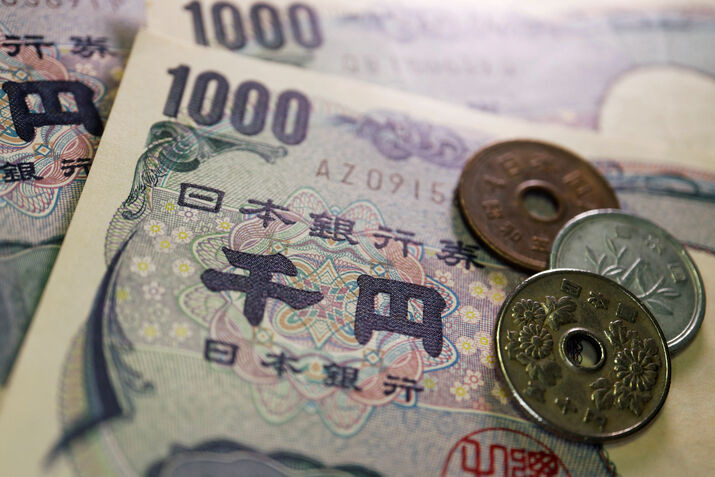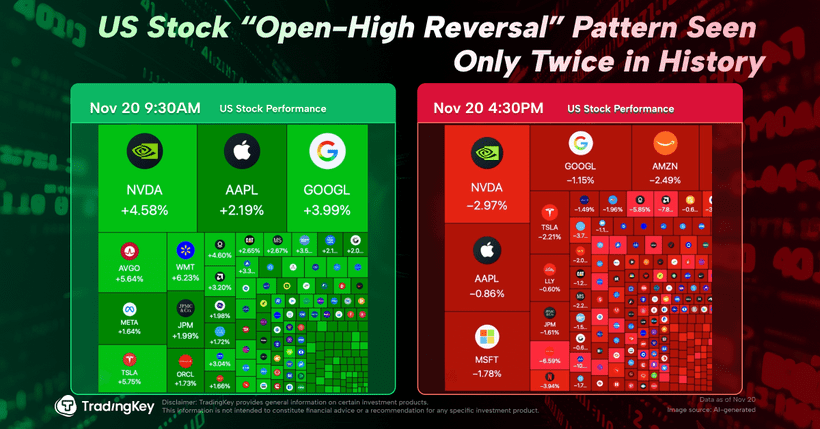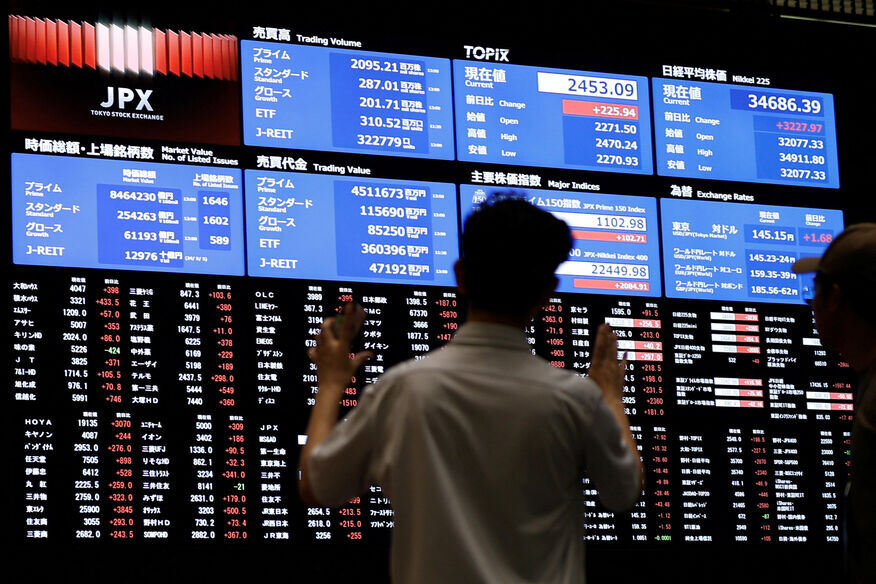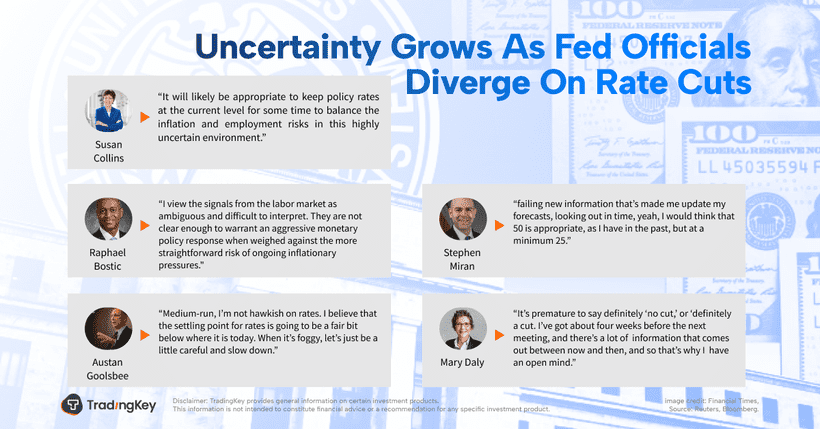Investors reload rate hike bets in Japan
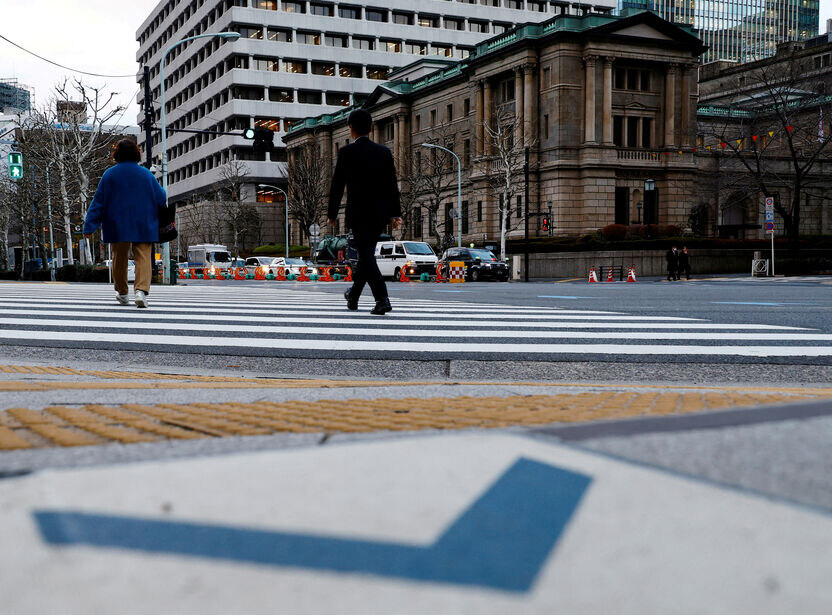
SINGAPORE, Nov 19 (Reuters) - Investors are betting a slide in the yen will force a hawkish shift at the Bank of Japan and are shorting bonds, buying bank shares and bracing for rates to rise as soon as next month.
Markets are paying attention because Japan's last rate hike 3-1/2 months ago - against the tide of global cuts - was part of the trigger for a chaotic surge in the yen that whipped around the world as positions funded in yen were quickly unwound.
With the yen at 154 to the dollar and near levels that drew intervention, followed by a rate hike, investors are taking fewer chances this time. They have accumulated positions, notably in bank stocks, which stand to benefit from higher rates.
"There seems to be a lot more attention and sensitivity being paid around the BOJ," said Shinji Ogawa, co-head of Japan cash equities sales at J.P. Morgan in Tokyo.
"That's being expressed through various asset classes, whether it be direct overnight index swaps...(or) financials, which is an area where there's obviously pretty aggressive share price movement."
Dealers say some hedge funds have also taken out bets on bond yields rising. Since late October, pricing for a 25 basis point hike in Japan in December has gone from negligible to about a 54% probability.
"Fast money is again focusing on short end of the curve," said Keita Matsumoto, head of financial institution sales and solutions at Citigroup Global Markets Japan, with hedge funds accumulating small short positions over recent weeks.
In the two weeks since the U.S. election, Tokyo bank shares (.IBNKS.T), opens new tab have surged about 13% against a mostly flat broader market (.N225), opens new tab where exporters, especially in cyclical sectors like industrials (.INFRO.T), opens new tab and machinery (.IMCHN.T), opens new tab, have been the other outperformers.
"Our focus has been on Japan mid-caps and Japan banks," said George Efstathopoulos, manager of a $102 million global multi-asset fund at Fidelity International, as they stand to benefit from wage inflation and higher interest rates respectively.
"More recently, we are also turning more constructive on broader Japan large caps, as yen weakness should translate into a better earnings picture at a time when global growth is re-accelerating," he said.
YEN STORY
The price of the yen is a major factor in Japan's economy and equity market performance and can influence monetary policy through the cost of imports, which drive inflation.
BOJ Governor Kazuo Ueda made only passing mention of the currency, which has lost more than 30% against the dollar since the start of 2021, in a closely watched policy speech on Monday.
However, markets think the falling yen will pressure the central bank to move sooner rather than later, particularly as foreign exchange traders bet on a deeper slide.
"In light of the recent performance of the Japanese yen, the BOJ might need to re-evaluate whether they need to be more hawkish in the coming meetings," said Nathan Swami, Asia-Pacific head of currency trading at Citi in Singapore.
Speculators in foreign exchange have been adding to bets against the yen, according to CFTC data .
To be sure, bets in the rates market are modest and a more than 375 basis point gap between two-year U.S. rates and two-year Japanese rates is a powerful fundamental driver of the yen's weakness that has many investors comfortable.
"Given the yield differentials and the carry trade, many clients have been structurally eager to be long the dollar," said Shafali Sachdev, head of investment services in Asia at BNP Paribas Wealth Management in Singapore.
Still, the scars of August, when the yen's lurch higher drove the Nikkei's largest one-day drop since 1987, has the currency strategy at the front of investors' minds.
"I think Japan will be a yen story as much as a Japanese fundamentals story," said BNY strategist Geoff Yu. And, said Citi's Matsumoto, that may even be a boon for foreign investors in Japan if the currency stops eating in to dollar returns.
"Because global investors have to worry about where this yen depreciation may stop," he said. "So they are looking for the bottom on JPY."



